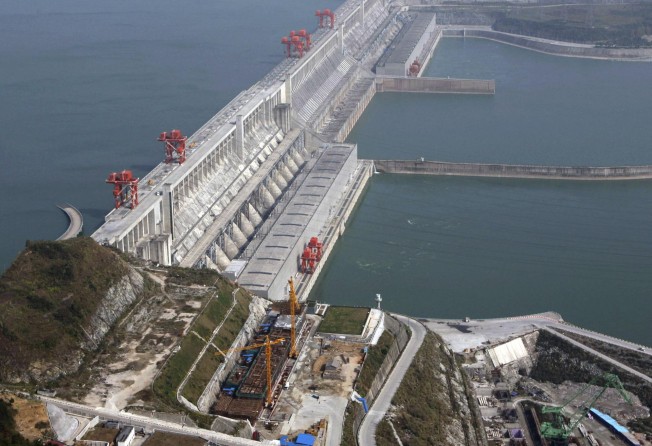China's hydropower expansion plans defy lessons of Three Gorges Dam

A decade after China began filling the Three Gorges Dam, concerns about the project's environmental and human cost endure even as the country prepares a huge hydropower expansion.
More than 1.2 million people were displaced as the water in the dam, which started accumulating 10 years ago on Saturday, submerged scores of towns and communities, and thousands of poorly compensated migrants remain mired in poverty.
But the nation's growing thirst for energy means the Three Gorges, which generates roughly as much electricity as a dozen commercial nuclear reactors, is a model for 50 large dams to be built in the country, according to the current five-year plan.
Those barrages will crank out more than the hydropower capacity of the US, putting China - already the world's largest hydropower consumer - on the way to providing 15 per cent of its energy from renewable sources by 2020.
China's state-run media has praised the Three Gorges Dam for generating more than 88.2 terawatt hours (TWh) of electricity last year - more than France's entire yearly output of renewable energy, and exceeding the project's original goal.
The huge reservoir has also been hailed for lessening the floods that have plagued the Yangtze River, claiming thousands of lives as recently as 1998.
But the dam has been blamed for amplifying changes in weather patterns that in 2011 produced the Yangtze's largest drought in half a century, while heavy rainfall has continued to flood cities downstream, killing hundreds.
As dam officials sacrificed energy generation to release water to combat the drought, the State Council, or cabinet, made a rare admission that the dam faced "urgent problems", including the relocation of migrants and ecological damage.
A migrant whose home was submerged said he refused to accept government compensation, saying it was too little and that land assigned to migrants had been sold by local officials.
"The land they compensated us with was scattered in the areas across the city no one else wants. We can't run a business there. Of course we can't sign the agreement," Luo Xianwen, 69, said.
The much-touted power of the dam to boost shipping on the Yangtze - turning it into a highway for large tankers for the first time to reach the inland city of Chongqing - has proved limited.
The ambitious plans for more dams have left some in China's environmental movement feeling powerless. "Industry and local governments support these hydropower projects because they'll profit from them," Dai Qing, who was in prison for her opposition to the Three Gorges Dam, said. "And they will be built no matter what local people say."